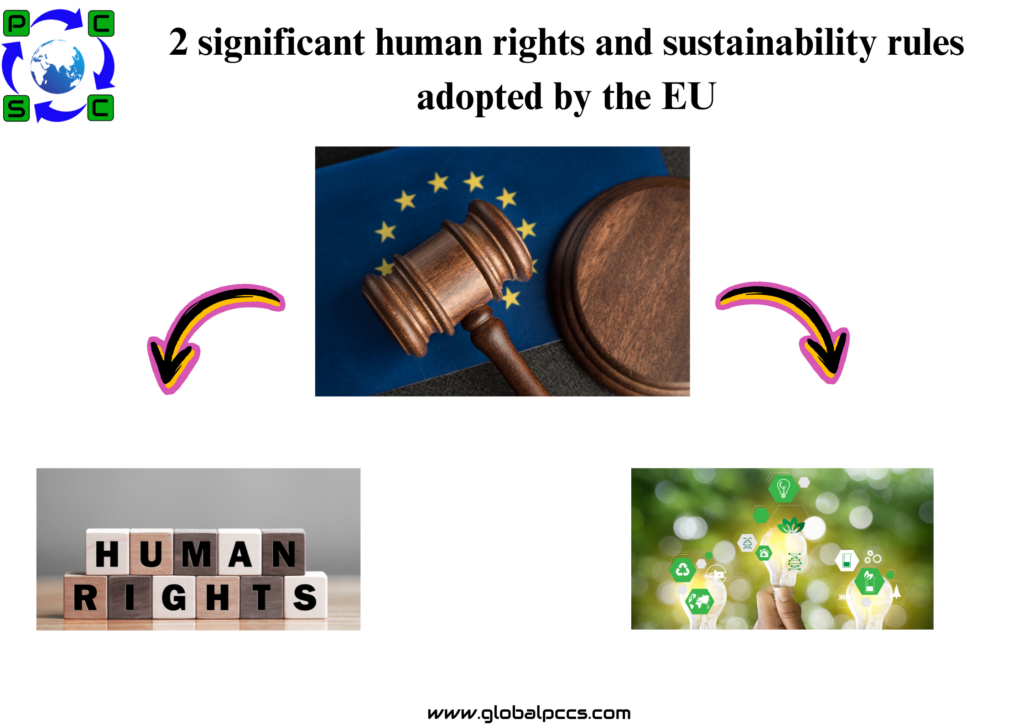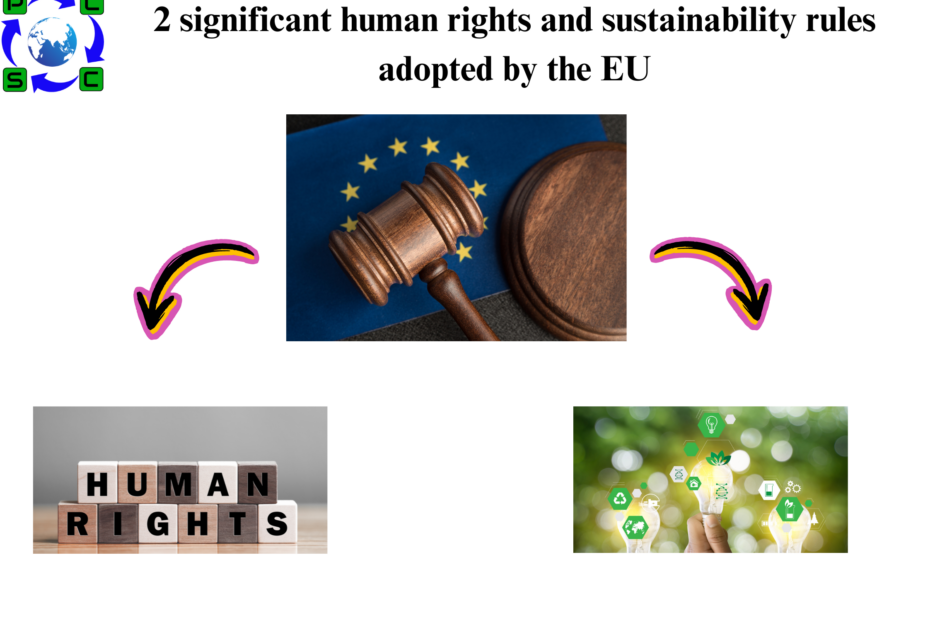 According to recent official pronouncements, the European Union legally enacted two pieces of broad labor and sustainability law in May: the Corporate Sustainability Due Diligence Directive and the Ecodesign regulation.
According to recent official pronouncements, the European Union legally enacted two pieces of broad labor and sustainability law in May: the Corporate Sustainability Due Diligence Directive and the Ecodesign regulation.
Sustainability standards pertaining to longevity, a product’s environmental impact, and ease of repair, reuse, and upgradability will be introduced via the Ecodesign rule. According to the statement, the legislation also mandates that items have a digital product passport loaded with details about the product’s manufacturing process.
The Deforestation-free Products Regulation and Packaging Waste Regulation are two of the EU legislation that aim to reduce the environmental effects of consumption. The most recent additions to this category are CSDDD and Ecodesign.
With regard to the EU Strategy for Circular and Sustainable Textiles, which stipulates that by 2030, all textile products sold in Europe must be durable, repairable, recyclable, primarily composed of recycled materials, free of hazardous materials, and “produced in respect of social rights and the environment,” ecodesign specifically amends a 2009 law that covered a narrower range of products and creates the legislative framework for its implementation.
According to the statement, Ecodesign will enable the European Commission to impose certain design and reporting guidelines for nearly all goods marketed in Europe when it enters into effect in two years. According to the statement, businesses will then have 18 months to comply with these rules.
Additionally, “a direct ban on the destruction of unsold textiles and footwear” is introduced by the Ecodesign legislation, which is effective for big organizations in two years and for medium-sized businesses in six. The EU defines the latter as businesses with between 50 and 250 employees and yearly sales between 10 million and 50 million euros.
According to a European Union web page, the new legislation also mandates that businesses produce a digital product passport that includes details about a product’s environmental sustainability in order to assist consumers in “making informed choices” and to make repairs and recycling easier.
In the meanwhile, non-EU businesses with an equivalent level of EU sales, as well as EU enterprises and parent companies with more than 1,000 workers and above 450 million euros in yearly turnover (about $480 million at current exchange rates) will be subject to the CSDDD.
Following the signing of the rules, member states of the European Union have two years to draft national legislation implementing the directive. In addition, nations must “name and shame” noncompliant businesses and levy fines equivalent to at least 5% of global annual turnover in the case of significant violations, according to a news statement from the European Parliament.








 Authorised IMDS & CDX Training & Consulting partner for
Authorised IMDS & CDX Training & Consulting partner for






